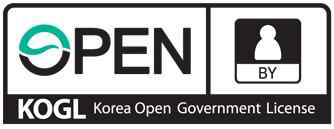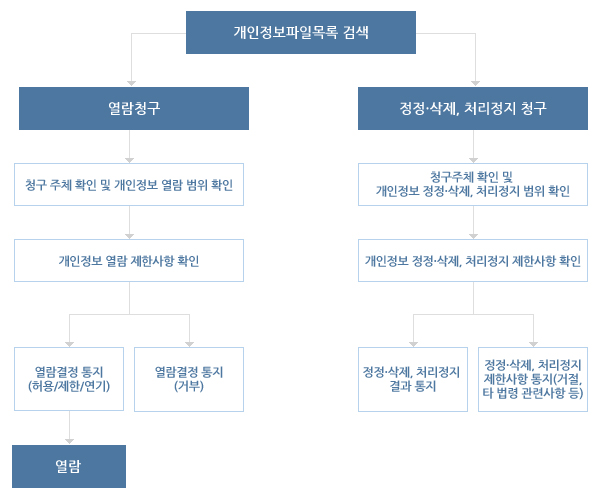Plenary Results
Plenary passes 79 bills including amendment to the Financial Investment Services and Capital Markets Act
- Jun 25, 2024
- 170
Plenary passes 79 bills including amendment to the Financial Investment Services and Capital Markets Act
- Illegal quasi-investment advisory businesses using online interactive channels included in “investment advisory business” category
for regulation
- Automobile manufacturers required to establish cybersecurity systems to prevent hacking cyberattacks on vehicle communications;
exchange·refund period for recurring vehicle defects extended to one year
- Construction project for railway connecting Daegu and Gwangju exempted from preliminary feasibility study, while receiving support
for station area development projects
- Public institutions outside Seoul Metropolitan Area required to hire at least 35% of new recruits from local talent pool
- Punitive damages for intentional idea theft expanded from three to five times actual damages
The National Assembly of the Republic of Korea (Speaker Kim Jin-pyo) passed 81 items, including 79 bills, at the first plenary meeting of the 412th extraordinary session on January 25, 2024. Major bills tabled for consideration are as follows:
<1> Amendment to the Financial Investment Services and Capital Markets Act
The amendment was approved to regulate illegal quasi-investment advisory businesses, cases of quasi-investment advisory businesses shifting online to lure individual investors to group chat rooms.
Those allowed to conduct businesses on a paid membership basis using online interactive channels are included in the category of “investment advisory business operators” for regulation. For any person who has been sentenced to a fine or greater punishment (and for whom five years have not elapsed since the execution of the sentence), his/her report of quasi-investment advisory business may be rejected.
Labeling and advertising that mislead consumers into thinking a quasi-investment advisory business is a financial company, that promise compensation for losses and guarantee profits, and that display false rate of return or unrealized return are prohibited. Labeling and advertising services and investor instructions promised but not delivered by these business operators are also banned.
Any person reported for quasi-investment advisory business fraud or other improper means shall be punished by imprisonment with labor for a maximum of one year or by a fine of up to KRW 30 million. A person who engages in unsound business activities or violates compliance requirements for a quasi-investment advisory business shall be subject to an administrative fine of up to KRW 100 million.
<2> Amendment to the Motor Vehicle Management Act
The approved amendment introduces a certification program for automobile cybersecurity management systems and software management programs.
Recently, the mobility industry has been shifting from internal combustion engine vehicles to electric vehicles equipped with electronic devices. The amendment aims to secure automobile communications by preventing hacking or cyberattacks on vehicle communications.
The amendment mandates that automobile manufacturers establish a cybersecurity management system and obtain certification for such to protect motor vehicles from cyberattacks and threats. They shall comply with specific requirements during software updates and submit details and methods of the updates to the Minister of Land, Infrastructure and Transport.
The amendment also extends the period of coverage for repeated defects from six months to one year to enhance consumer rights, enabling buyers to request an exchange or refund due to recurring defects in a new car within one year of the vehicle purchase.
Additionally, specific vehicle models will be installed with accident recording devices, and the used car market’s management of flooded vehicles will be upgraded.
<3> Special Act on Construction of the Dalbit High-Speed Railroad*
The approved Special Act stipulates the necessary provisions for constructing a railroad connecting the cities of Daegu and Gwangju. The name “Dalbit” is a portmanteau of “Dalgubeol,” the old name of Daegu, and “Bitgoeul,” the pure Korean word for Gwangju.
During the legislative review by the Land, Infrastructure, and Transport Committee, the name was changed from “Dalbit High-Speed Railroad” to “Dalbit Railroad,” and has been designated as a “general railroad” under Article 2(4) of the Act on Railroad Construction and Railroad Facilities Management.
To expedite and facilitate the construction project, a special provision has exempted it from preliminary feasibility studies. However, during the committee’s review, surrounding area development projects are not included in this exemption.
* Under Article 38 of the National Finance Act, new projects with a total project cost of 50 billion KRW or more, at least 30 billion KRW of which the country will subsidize, are subject to the preliminary feasibility study.
The Minister of Land, Infrastructure and Transport or the mayor/provincial governor can designate development zones and carry out such development projects in the train station’s sphere under the Act on Developing and Using Station’s Sphere of Influence for systematic and efficient development. The Special Act will take effect six months after the promulgation of the Act.
<4> Amendment to the Act on the Development of Local Universities and Colleges and Regional Human Resources
The amended Act mandates that public institutions in areas outside the Seoul Metropolitan Area hire at least 35 percent of their new recruits locally. It also requires public institutions and companies with over 300 regular employees to publicly disclose their local talent hiring records.
Presently, public institutions and companies with over 300 employees are required to hire a certain percentage of new recruits from the local talent pool, and the government may provide necessary support for public institutions and companies to hire more than 35 percent of annual new recruits from local university graduates (including soon-to-be graduates).
The amendment aims to boost the hiring of local talent by public institutions outside the Seoul Metropolitan Area, encourage public institutions to take the lead in accepting the policy, and promote active policy implementation by disclosing companies’ local talent hiring records.
<5> Amendment to the Unfair Competition Prevention and Trade Secret Protection Act
The amended Act increases the amount of compensation for damages from willful infringement of trade secrets and idea theft from the current three times to five times the actual damages amount.
The maximum fine for corporations convicted of unfair competition or infringement of trade secrets has been hiked to three times the maximum amount for individual violators, while the prescription of public prosecution for infringement of trade secrets by corporations is set at 10 years, the same as that for individual violators. The goods obtained through trade secret infringement in either case shall be forfeited.
The amendment includes the introduction of a correction order by the Commissioner of the Korean Intellectual Property Office for those engaged in acts of unfair competition. It improves and supplements existing systems found to be insufficient, such as when there is a request for inspection or copy of administrative investigation materials, or the submission of administrative investigation records to courts.


